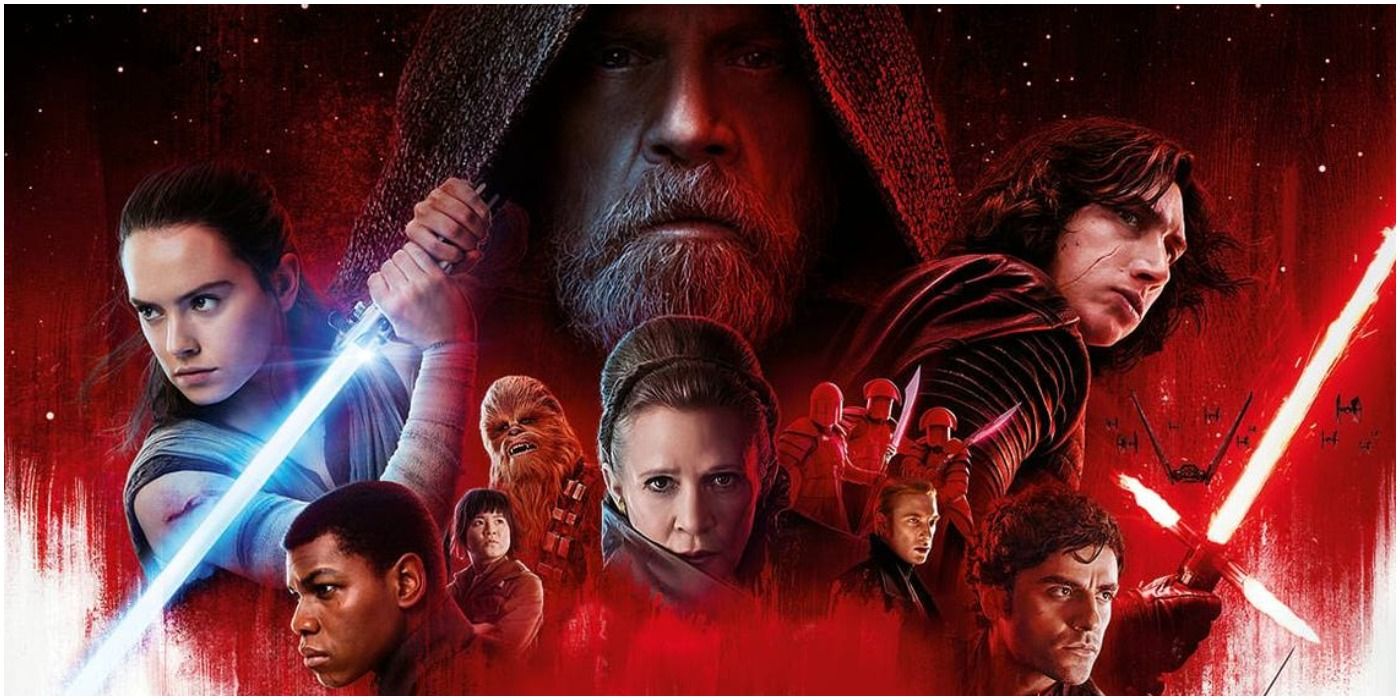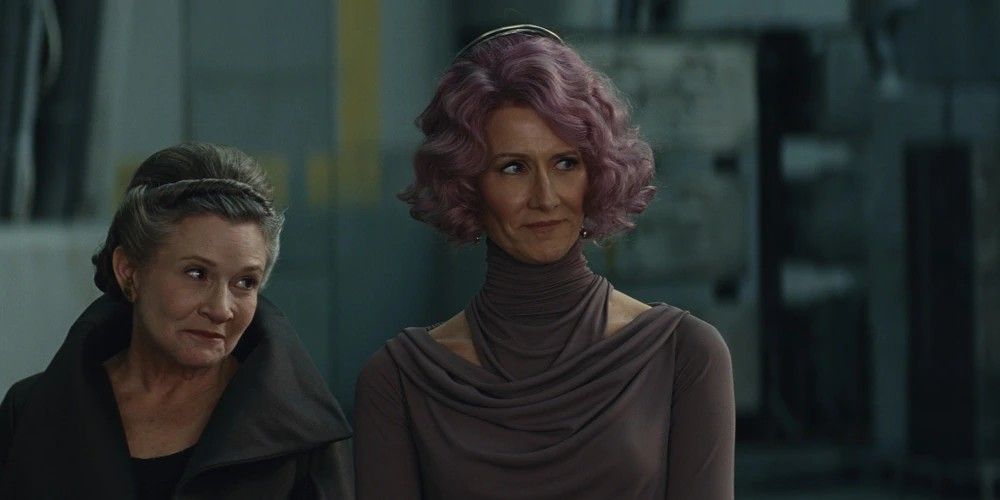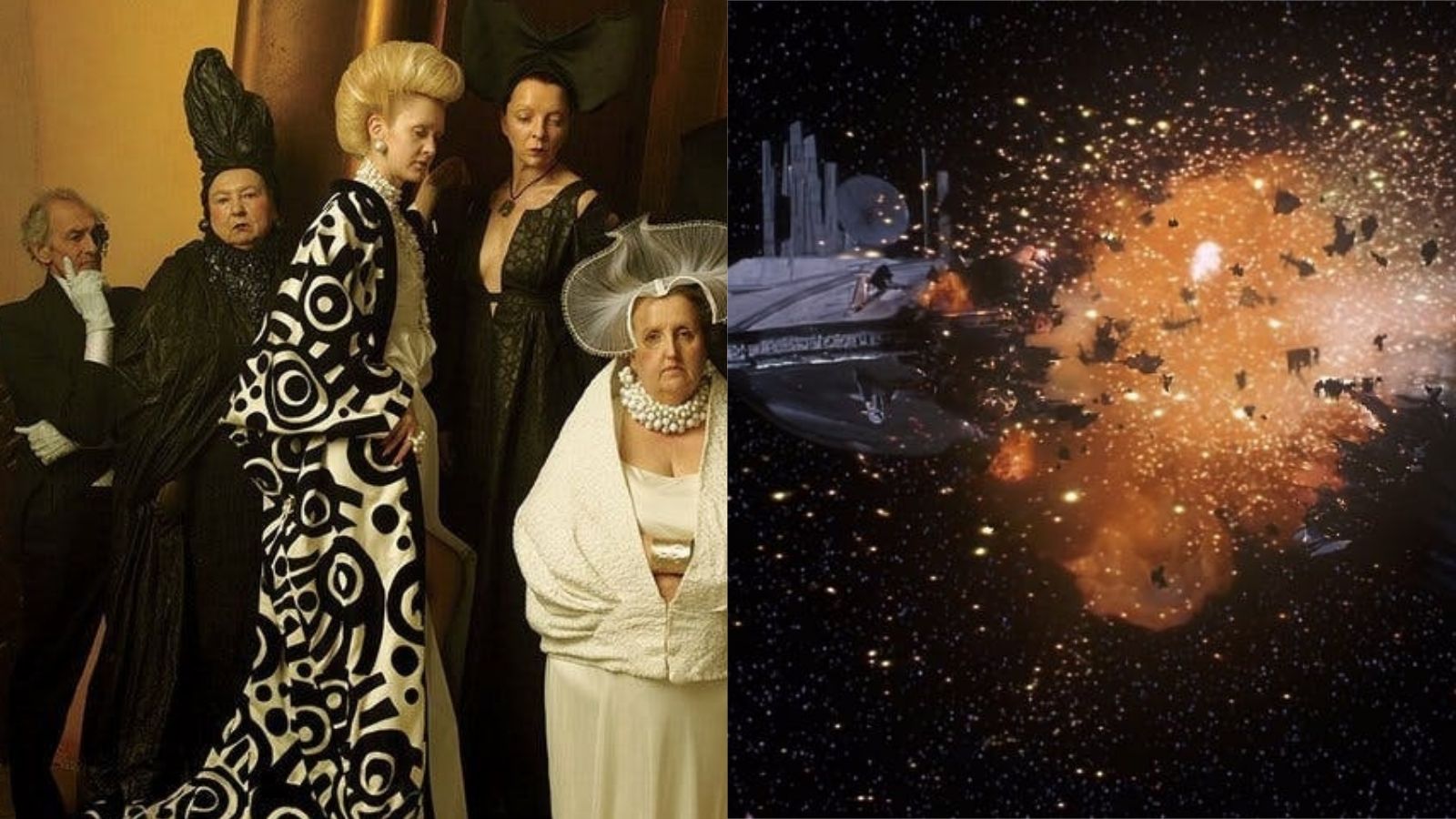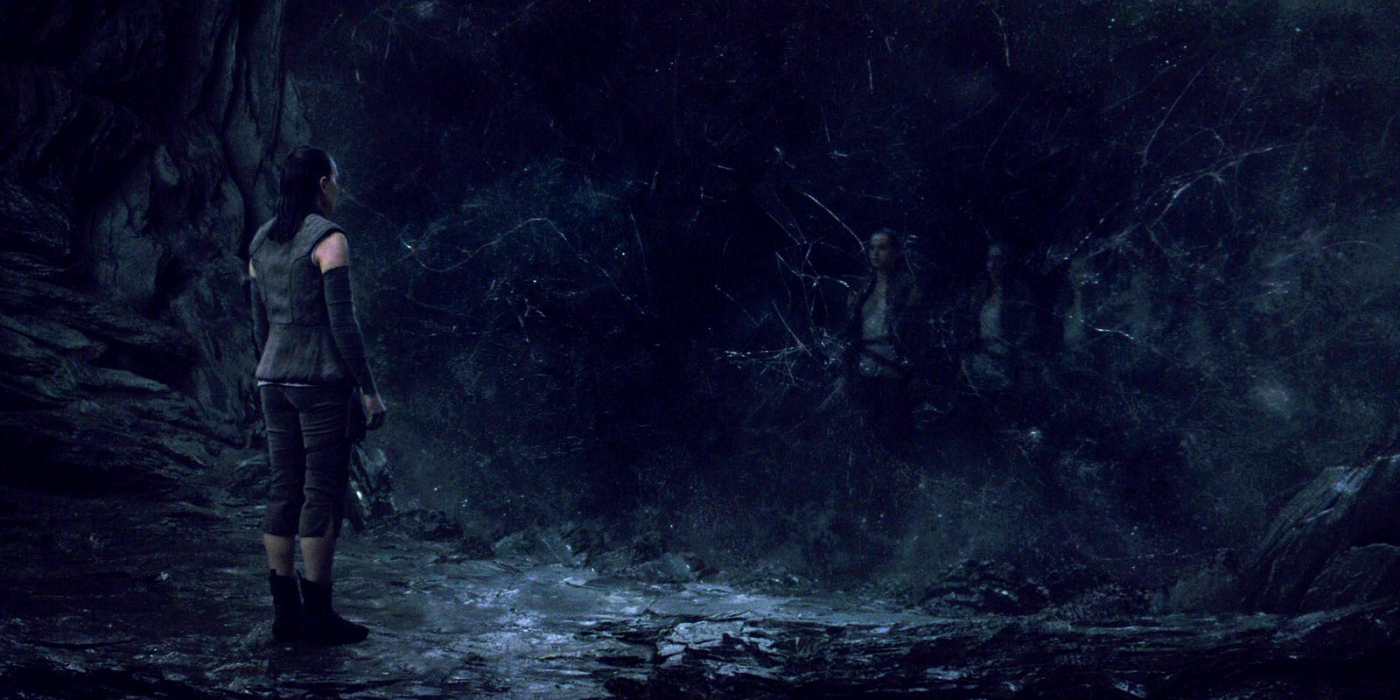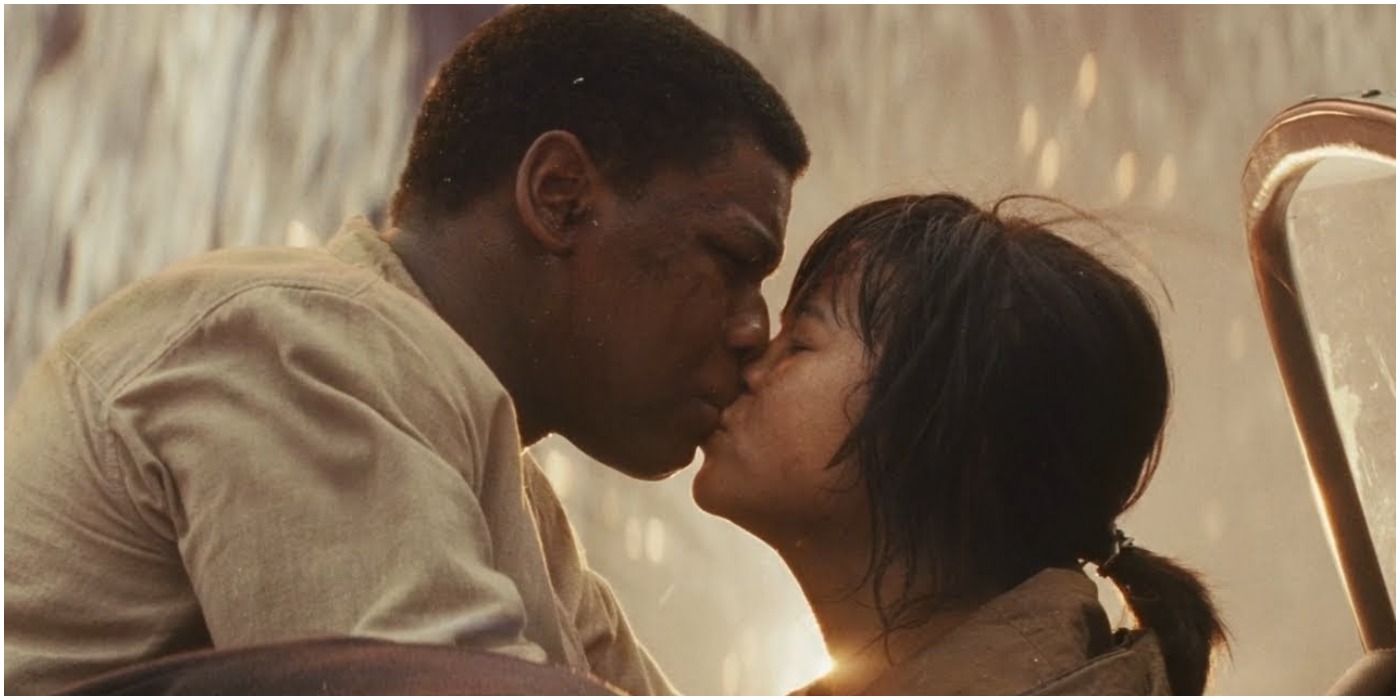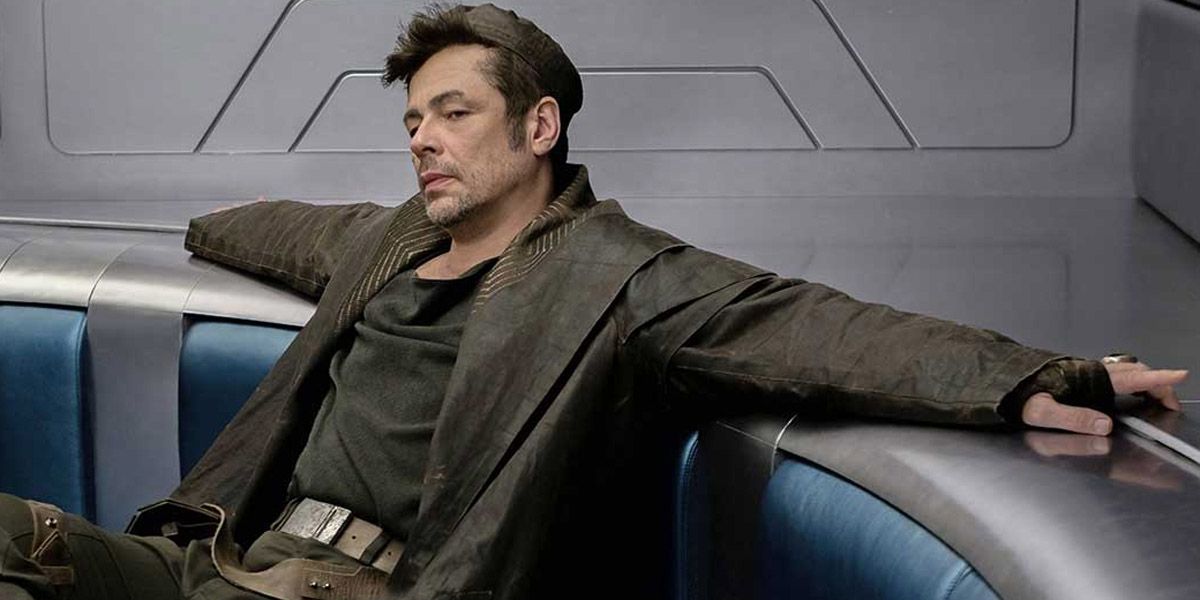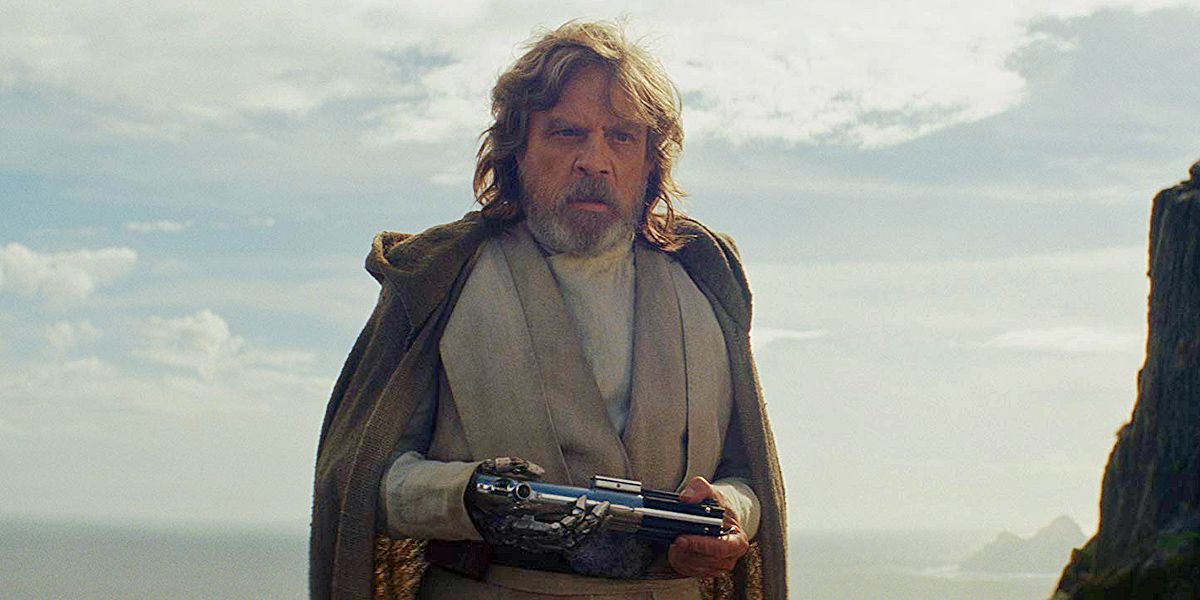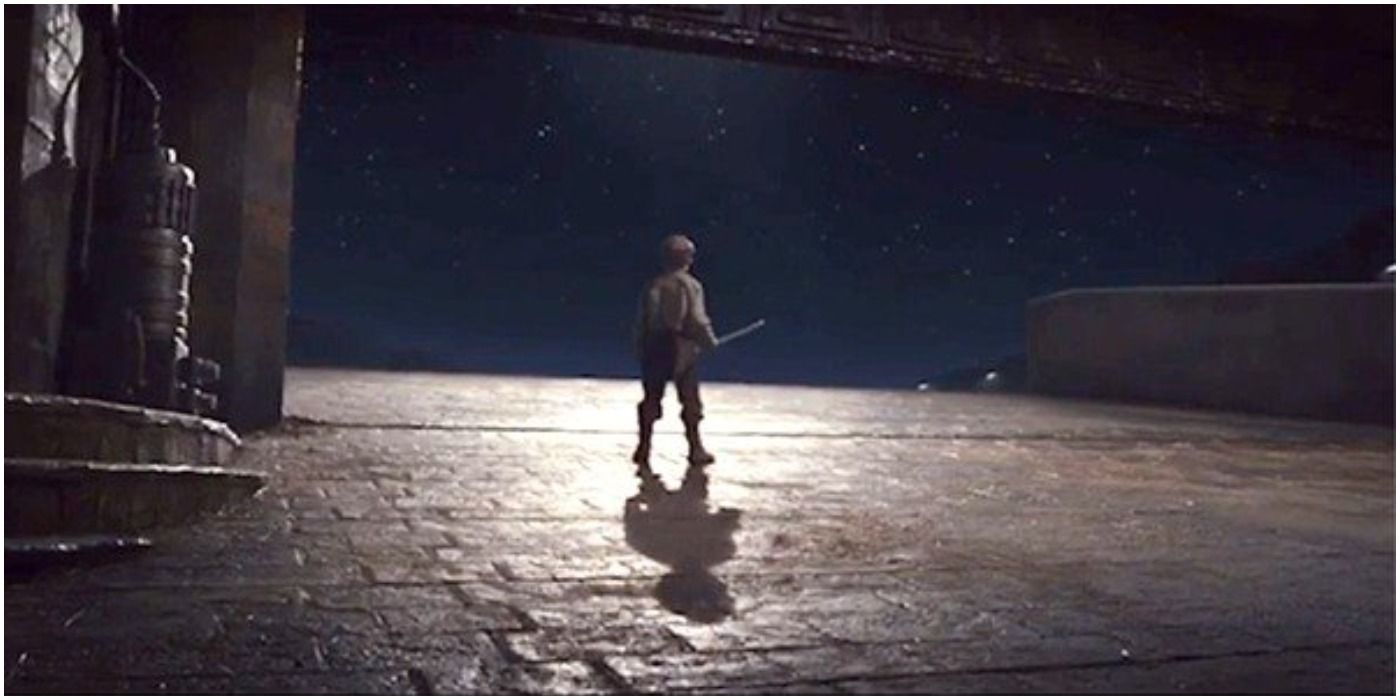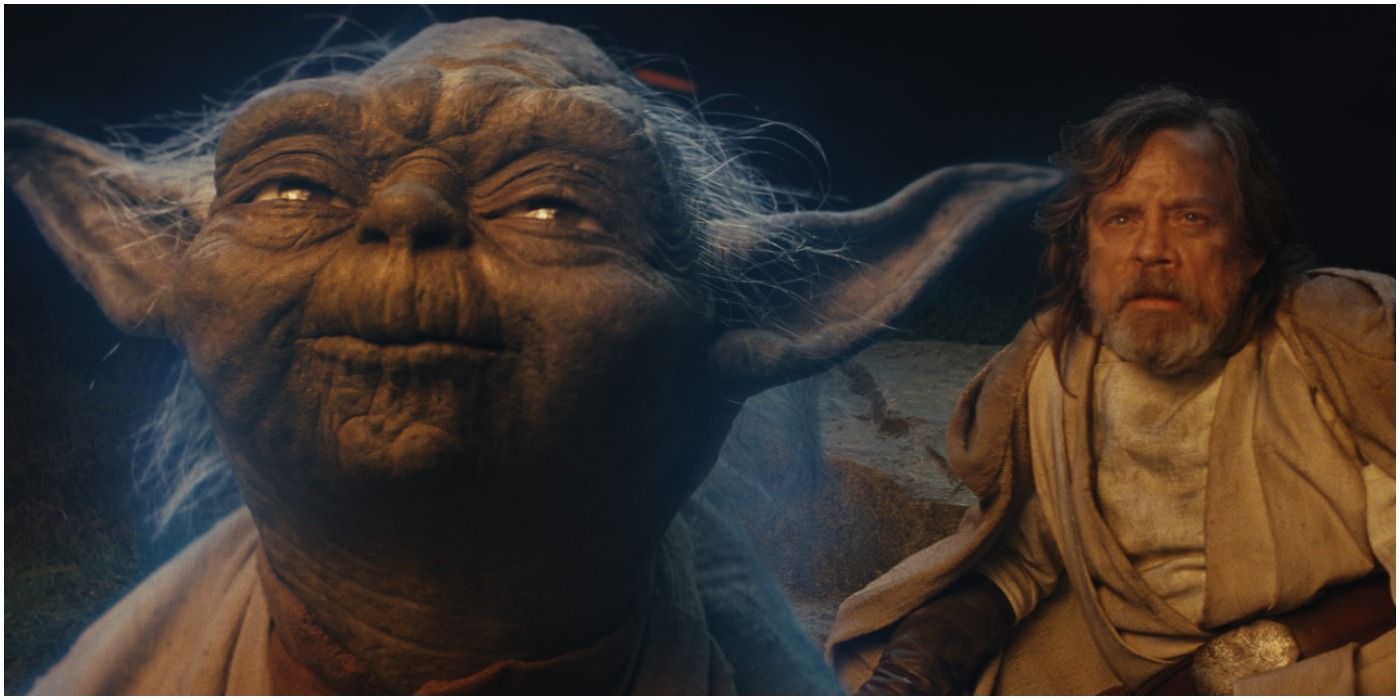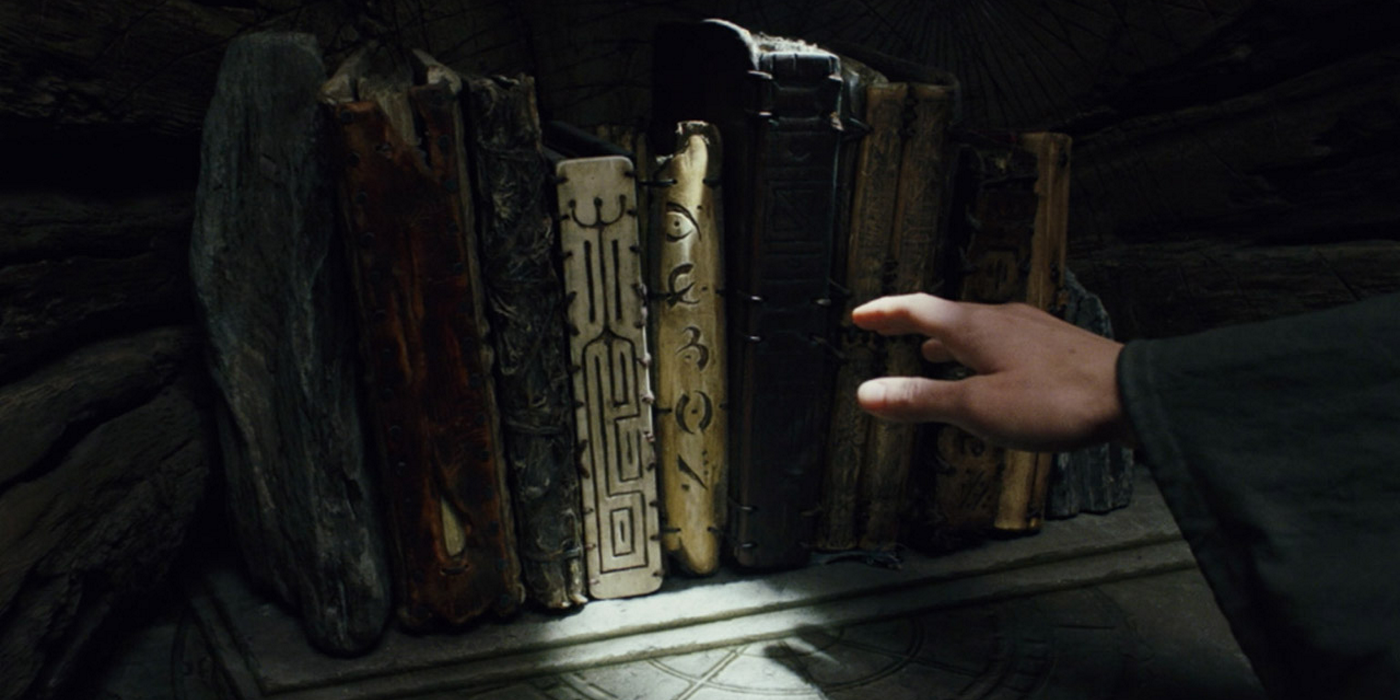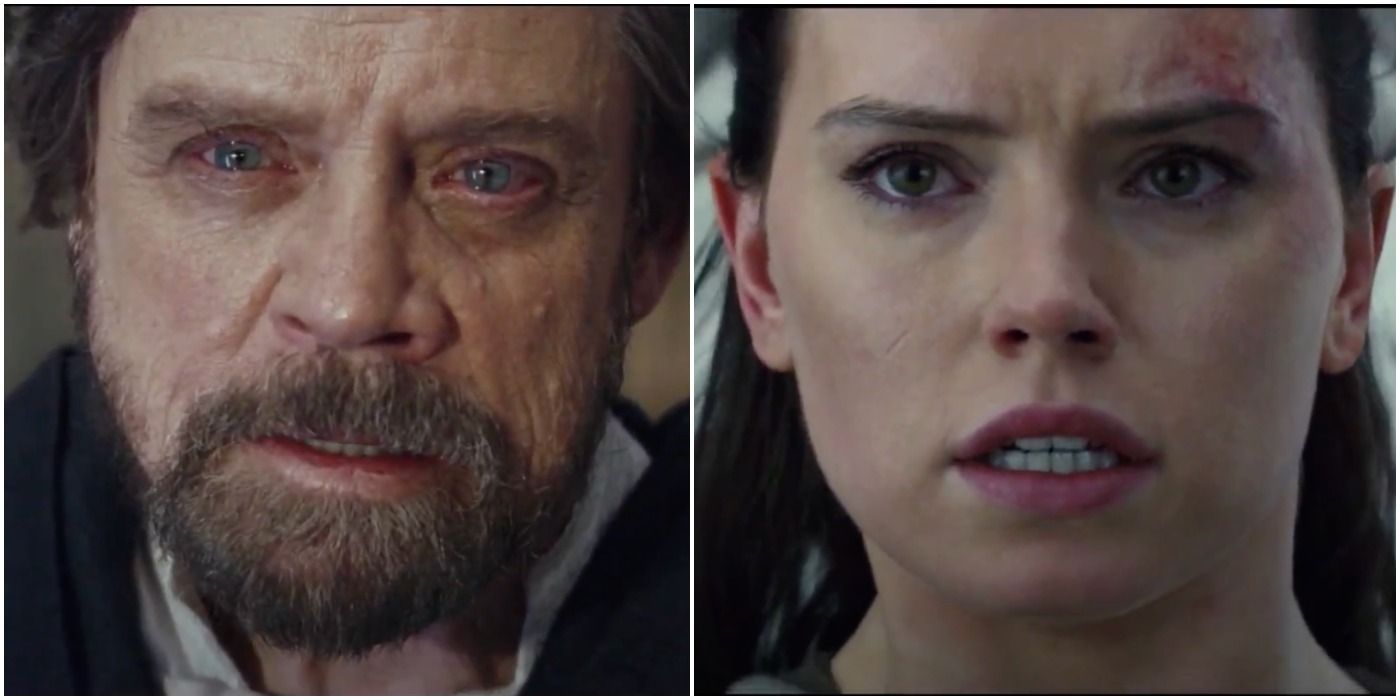The Last Jedi is a breed of film increasingly rare in the 21st century; a blockbuster with ideas. Specifically, ideas both politically-charged and self-reflexive about the mythology of Star Wars.
While making the film, director Rian Johnson clearly had more on his mind than just catering to fan theories and nostalgia. So, The Last Jedi is the most challenging Star Wars film to date. Here are some of the most prominent themes of the film, both ones unique to it and ones of a piece with the saga as a whole.
10 Hope Is The Fuel Of Resistance
This is more so the overarching theme of the Star Wars saga, but The Last Jedi has one of best demonstrations of how hope can inspire those to rise against oppression. Early in the film, Supreme Leader Snoke declares that "Skywalker lives... as long as he does, hope exists." Sure enough, it's Luke's return and sacrifice which reignites, as Poe puts it, "the spark, that will light the fire that will burn the First Order down." Leia reassuring Rey "we have all we need" with a Millennium Falcon-full of Resistance members supplements the greater idea; you can't let of hope even in the darkest of times.
9 Money Is The Fuel Of War
Rian Johnson has kind words for the prequel trilogy, so it should be no surprise that he looked to further the themes of those movies in The Last Jedi. Throughout the prequel trilogy and associated tie-in media, it's made clear that the Republic has been corrupted from within by corporations like the Trade Federation; the same corporations go onto fund and profit from the Separatists during the Clone Wars. The detour to Canto Bight in The Last Jedi has a similar critique of predatory capitalism; the planet's decadence is funded by arms dealing.
8 You Don’t Have To Come From Somewhere Special to Be Someone Special
Rather than reveal Rey to be of a noted Star Wars lineage, Johnson instead revealed she was "nobody," the daughter of paupers on Jakku who'd never cared for her. As Johnson noted in a post-release interview, this moment parallels the reveal of Darth Vader as Luke's father in The Empire Strikes Back. Yet, the differences in these scenes speak to the differences between Luke and Rey; Luke didn't want Vader to be his father, while Rey desperately wants someone to be hers.
The reveal carries on from Maz Kanata's advice to Rey in The Force Awakens - "the belonging you seek is not behind you... it is ahead." Rey must forge her own destiny, not seek out one laid down for her by her family. It's also in line with The Last Jedi's portrayal of the Force as a universal property, and how you don't need to come from a powerful bloodline to wield it. A powerful, relevant, and far more progressive message than confining the Force's power to just a few families.
7 Love, Not Hate
When Rose saves Finn from sacrificing himself on Crait, she tells him, "That's how we're gonna win. Not by fighting what we hate. But saving what we love." It's a message which is salient to both Star Wars, for hatred is the path to the Dark Side, and the real world; if one wants to create a truly better world, they can't simply oppose evil and oppression, they need an affirmative vision of a better world worth fighting for.
6 Those Who Don't Choose A Side Are Siding With Evil
Anti-Apartheid activist Desmond Tutu's oft-quoted statement, "If you are neutral in situations of injustice, you have chosen the side of the oppressor," is exemplified in The Last Jedi by the character of DJ. Claiming himself unbound by ideology, he tries to persuade Finn to adopt his neutral, "everyone for themselves" outlook on life. Ironically, DJ selling Finn and Rose out to the First Order is the final push Finn needs to truly embrace the Resistance.
5 Reality Often Doesn’t Live Up To Myths…
Luke Skywalker begins The Last Jedi as a disillusioned hermit, burdened by guilt for his nephew's fall to the Dark Side and unwilling to face the First Order. This is a stark contrast from the legendary hero known by most of the galaxy and expected by Rey. It's also one of the film's best bits of meta-text; this is a far cry from the optimistic Luke of the original trilogy, the one who was desperate for adventure and brought his father back to the light. While Luke crawls out of the pit he's found himself in by the film's end, how he begins demonstrates an old, sadly true, refrain; "Never meet your heroes," for they're just as human as anyone else.
4 …But That Doesn’t Mean Myths Don’t Have A Purpose
Rey tells Luke, disillusioned by his own legendary reputation, that "the Galaxy may need a legend." The film's ending shows why she was right. Luke's final act in this life is to face down Kylo Ren and the First Order on Crait, buying time for the Resistance, and the hope they carry, to escape.
The film's final shot, a young, Force-sensitive slave boy Canto Bight wielding a broom like a Lightsaber, proves that as "the legend of Luke Skywalker" and his last stand of Crait spread across the galaxy, it brought the will to resist along with it.
3 Failure Is The Greatest Teacher
Yoda's brief appearance to Luke is where most of The Last Jedi's themes are most clearly spelled out. In particular, take note of the Jedi Master's statement that "the greatest teacher, failure is." It's a common lesson, that we can only truly grow by learning from our mistakes, but it's one that's relevant to The Last Jedi three times over: Luke's failure with Ben Solo doesn't have to define him, the Jedi's past failings don't mean the Order can't be rebuilt better than before, like Star Wars itself can become something better than it has often been.
2 Learn From The Past To Build A Better Future
A common misinterpretation of The Last Jedi is to take Kylo Ren's advice to Rey, "Let the past die. Kill it, if you have to," at face value, as the film's thesis. Nothing could be further from the truth. Tied together with the film's themes of failure is the idea that one should be mindful of the past, and learn from it, in order to create a better future. It also speaks the fine line of nostalgia; you can honor the past without being completely bound to its ways and traditions.
1 We Are What We Pass On
In the end, the only true path to immortality is through the legacy we leave behind, a legacy that influences the generations that come after us. Luke is initially intent on letting his legacy be the death of the Jedi, convinced the galaxy would be better without them; even his tutelage of Rey doesn't disabuse him of this notion. When Yoda tells Luke "We are what they grow beyond. That is the true burden of all masters," however, Skywalker clearly recognizes the truth of these words by the film's end. When standing against Kylo Ren on Crait, Luke triumphantly declares "I will not be the Last Jedi," before the film cuts to a close-up of Rey, having just used the Force to save her friends.

